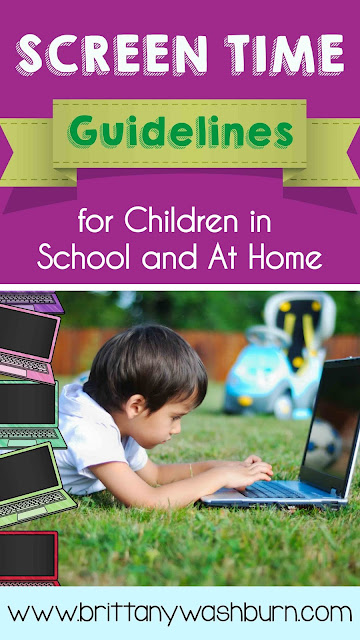Screen
Time Guidelines for Children in School and At Home
In today’s high tech and busy world, it’s a challenge to limit children’s total media time.There is constant exposure to TV, computers, and video games. It was a challenge to get children away from the screen without them beginning to hate you. You may even encourage more interactive activities such as creative play, reading together, athletics, and various hobbies.
We shouldn’t forget, though, that TV and computers in moderation can be a good thing, not only for entertainment, but media can also be used as an excellent educator. Children can learn alphabets and grade-school students can be exposed to science and nature shows.
The danger is too much media exposure and the wrong usage, which discourages other, more active pursuits. Problems range from lower grades in school, developing violent and aggressive behavior, and becoming overweight. Also, media exposes children to all kinds of advertisements.
That said, let’s start with some guidelines to limit media exposure:
- It is recommended for Children under 2 years old not watch any TV, and that those older than 2 watch no more than 1 to 2 hours a day of quality programming.” Most programs should be informational, educational, and nonviolent, and the programs should be monitored.
- Also, keeping “TV sets, VCRs, video games, and computers out of children’s bedrooms.” This might help control the dramatically rising rates of media usage by children and teens.
- It is found that “6-year-olds who spent the most time watching television, using a computer or playing video
games had narrower arteries in the back of their eyes-a marker of future cardiovascular risk.”
- Parental involvement could improve how media affects kids’ lives. We should have discussions with our kids so that we reach agreement on the matter in advance. Sitting down with the child and discussing the specific details about this matter makes it easier for the child to understand.
- Another easy way to limit screen time is not to turn it on. Sounds easy enough, but it can be difficult at first. But when everyone gets home from school or activities, instead of flopping down in front of the tube, offer a snack and sit at the table and do homework. Make a rule that says no television until after dinner. You and your children might be frazzled at first, but it will help bring your children together and make you a better family overall.
There are many ways to sneak activities in to substitute for television time. Try to downplay the television and avoid power struggles. Instead of repeating no television over and over, just announce that it’s time for whichever activity you prefer.
· Set time limits on media usage. A new study has found that children whose parents set consistent rules about TV use were less likely to exceed recommended time limits. For us, TV/computer stay off during school days.
· Earning media time. On weekends and holidays, there is a set media time limit, and he may earn more media time with good behavior and chores.
· Provide alternatives to media. Weekday activities include karate, swimming, and guitar lessons. Weekend activities include ice skating, baseball, and skateboarding. I’m a firm believer that we must interrupt our children’s regularly scheduled programming to give them a healthier start on life.








